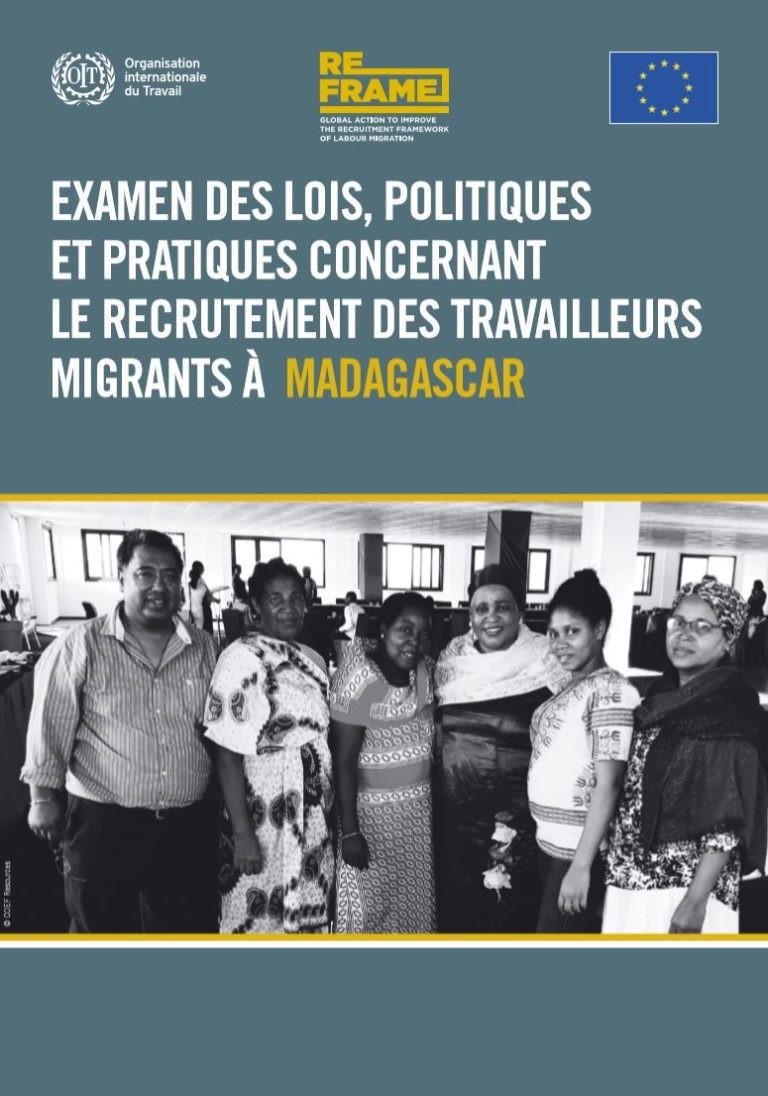General Principles and Operational Guidelines for Fair Recruitment- Definition of Recruitment Fees and Related Costs
The objective of these non-binding ILO general principles and operational guidelines for fair recruitment (hereafter “principles and guidelines”) is to inform the current and future work of the ILO and of other organizations, national legislatures, and the social partners on...

